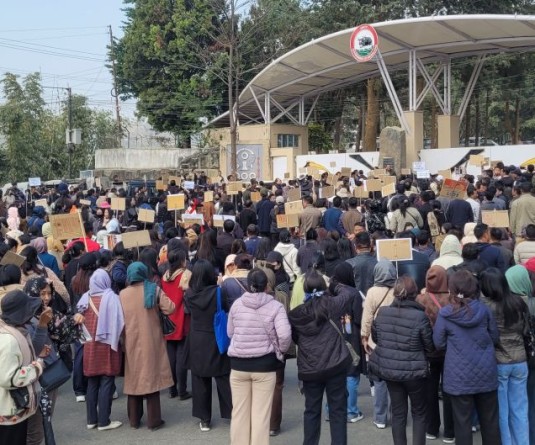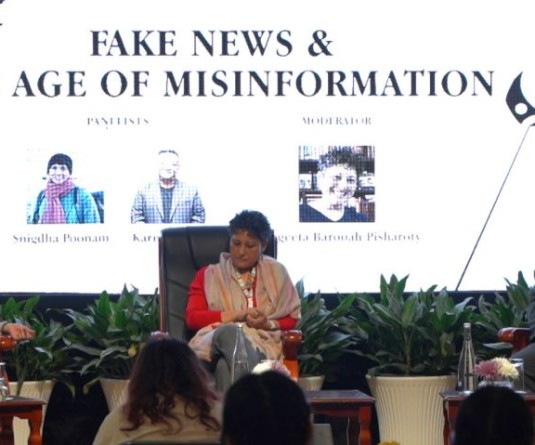Class 12 students of Don Bosco Higher Secondary School (DBHSS), Wokha learning traditional shawl weaving at the school premises on July 25.
Wokha, July 25 (MExN): With the objective of preserving the rich Naga cultural and traditional heritage, the class 12 students of Don Bosco Higher Secondary School (DBHSS), Wokha took part in cultural activity comprising of traditional shawl weaving, jewellery designing, traditional hut making, traditional fire making, bamboo plate making and basket weaving at the school premises on July 25.
Traditional shawl weaving and jewellery designing was carried out by the female students while the male students participated in basket weaving, traditional hut making, bamboo plate making and traditional fire making.
A press release received here stated that realising the need to preserve the rich cultural heritage of the Lotha community and promoting skill development, the event was conducted under the initiative of the Language Teacher, Marcus Humtsoe.
“At this fast changing world, the students are influenced with western and other alien culture which gradually makes the young people forget their own culture and identity,” Humtsoe lamented. He encouraged the students to give importance to the rich cultural heritage of the Lothas and carrying it forward throughout generations.
Speaking on the occasion, Rev Fr TC Joseph, Principal, DBHSS Wokha, highlighted that two events comprising interclass penalty shootout and cultural programme was organised in lieu of the centenary celebration of Salesian congregation coming to northeast India.
Rev Fr TC Joseph said that the students must learn their culture and also appreciate the good in the culture. “The students must not lose their identity with western education and all other imitations of different culture which may lose the values of one's own culture.”






